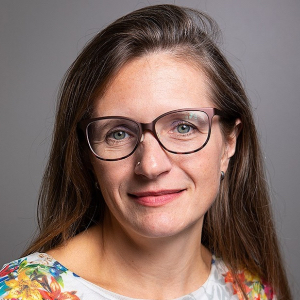Graduate Seminar Series
April 21, 2023
10:00 a.m. ET
7500 Wean Hall
April 21, 2023
10:00 a.m. ET
7500 Wean Hall
Advances in ab-initio crystal structure prediction algorithms, methods for calculating electron-phonon interactions, and machine learning have opened the door towards the rational discovery of conventional superconductors with superior behavior. Herein, we report theoretical studies of various light-element based superconductors that are discovered using the XtalOpt evolutionary algorithm for crystal structure prediction, or via high-throughput calculations on prototype structures known to be conducive towards superconductivity. Room-temperature superconductivity in SH3 doped with a third element under pressure has been reported. To shed light on the structures that may have been synthesized we carry out a systematic investigation of the effect of doping H3S by carbon and phosphorus, considering different doping schemes. Moreover, we show how a chemical pressure analysis can be useful in designing ternary or quaternary clathrate superhydride superconductors that can be stabilized to lower pressures. Finally, we consider carbon-containing superconducting materials stable at ambient conditions, some which are predicted to be superhard.
 Zurek received a BSc in Chemistry and Physics (2000) and an MSc (2002) from the University of Calgary, Canada. Eva was awarded a PhD fellowship from the Max Planck Research School for Advanced Materials in Stuttgart, Germany, and her postdoctoral research was performed at Cornell University with Roald Hoffmann in collaboration with Neil Ashcroft. In 2009 Eva became an Assistant Professor at the University at Buffalo, SUNY, where she was promoted to Full Professor in 2016. Eva received the Alfred P Sloan Fellowship (2013), The Minerals, Metals and Materials Society Young Leader Award (2014), UB Exceptional Scholar Young Investigator Award (2014), Quantum Systems in Chemistry and Physics Promising Young Scientist Award (2014), the APT Teaching Award from UB (2016), a SUNY Chancellor’s Award for Excellence in Scholarship (2021), and was named a fellow of the American Physical Society (APS). She is an editorial board member of Physical Review Materials, and Vice Chair for the APS’s Division of Computational Physics. Eva’s research is geared towards studying the electronic structure, properties and reactivity of a wide variety of materials using first-principles calculations. She is interested in high pressure science, superhard, superconducting, quantum and planetary materials, catalysis, as well as solvated electrons and electrides. Her group develops algorithms for the a prioriprediction of the structures of crystals, interfaces them with machine learning models, and applies them in materials discovery. Eva has been interviewed by Scientific American, NPR’s Science Friday, as well as CBC’s Quirks and Quarkson breakthroughs in materials discovery.
Zurek received a BSc in Chemistry and Physics (2000) and an MSc (2002) from the University of Calgary, Canada. Eva was awarded a PhD fellowship from the Max Planck Research School for Advanced Materials in Stuttgart, Germany, and her postdoctoral research was performed at Cornell University with Roald Hoffmann in collaboration with Neil Ashcroft. In 2009 Eva became an Assistant Professor at the University at Buffalo, SUNY, where she was promoted to Full Professor in 2016. Eva received the Alfred P Sloan Fellowship (2013), The Minerals, Metals and Materials Society Young Leader Award (2014), UB Exceptional Scholar Young Investigator Award (2014), Quantum Systems in Chemistry and Physics Promising Young Scientist Award (2014), the APT Teaching Award from UB (2016), a SUNY Chancellor’s Award for Excellence in Scholarship (2021), and was named a fellow of the American Physical Society (APS). She is an editorial board member of Physical Review Materials, and Vice Chair for the APS’s Division of Computational Physics. Eva’s research is geared towards studying the electronic structure, properties and reactivity of a wide variety of materials using first-principles calculations. She is interested in high pressure science, superhard, superconducting, quantum and planetary materials, catalysis, as well as solvated electrons and electrides. Her group develops algorithms for the a prioriprediction of the structures of crystals, interfaces them with machine learning models, and applies them in materials discovery. Eva has been interviewed by Scientific American, NPR’s Science Friday, as well as CBC’s Quirks and Quarkson breakthroughs in materials discovery.
December 5 2025
12:45 PM ET
Materials Science and Engineering
"Bridging AI and Quantum Materials: Opportunities and Challenges” presented by Mina Yoon, Oak Ridge National Laboratory
7500 Wean Hall
December 10 2025
8:30 AM - 5:00 PM ET
Materials Science and Engineering
Molecular Engineering of Soft Materials Symposium
The symposium will highlight cross-disciplinary research across CMU departments, with the goal of advancing soft materials research.
5201 Scott Hall
December 11 2025
4:00 PM ET
Materials Science and Engineering
M.S. Program Information Session
Join us online to learn more about becoming part of the graduate student community through our master's degree programs.
Virtual